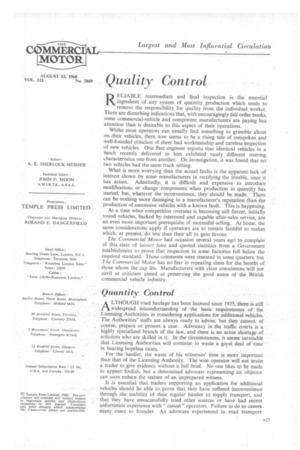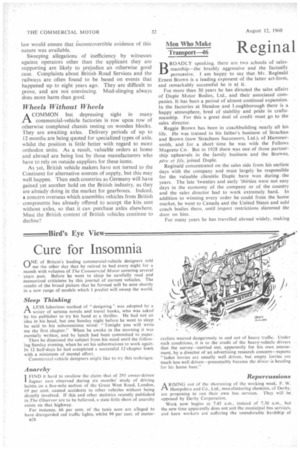Quantity Control
Page 35

Page 36

If you've noticed an error in this article please click here to report it so we can fix it.
ALTHOUGH road haulage has been licensed since l933, there is still widespread misunderstanding of the basic requirements of the Licensing Authorities in considering applications for additional vehicles. The Authorities' staffs are always ready to advise, but they cannot; of course, prepare or present a case. Advocacy in the traffic courts is a highly specialized branch of the law, and there is an acute shortage of solicitors who are skilled in it. In the circumstances, it seems inevitable that Licensing Authorities will continue to waste a good deal of time in hearing hopeless cases.
For the haulier, the waste of his witnesses' time is more important than that of the Licensing Authority. The wise operator will not invite a trader to give evidence without a full brief. No one likes to be made to appear foolish, but a determined advocate representing an objector can soon reduce the stature of an unprepared witness.
It is essential that traders supporting an application for additional vehicles should be able to prove that they have suffered inconvenience 'through the inability of their regular haulier to supply transport, and that they have unsuccessfully tried other sources or have had recent unfortunate experience with" casual operators. Failure to do so causes many cases to founder. An advocate experienced in road transport law would ensure that incontrovertible evidence of this nature was available.
Sweeping allegations of inefficiency by witnesses against operators other than the applicant they are supporting are likely to prejudice an otherwise good case. Complaints about British Road Services and the railways are often found to be based on events that happened up to eight years ago. They are difficult to prove, and are not convincing. Mud-slinging always does more harm than good.
















































































































